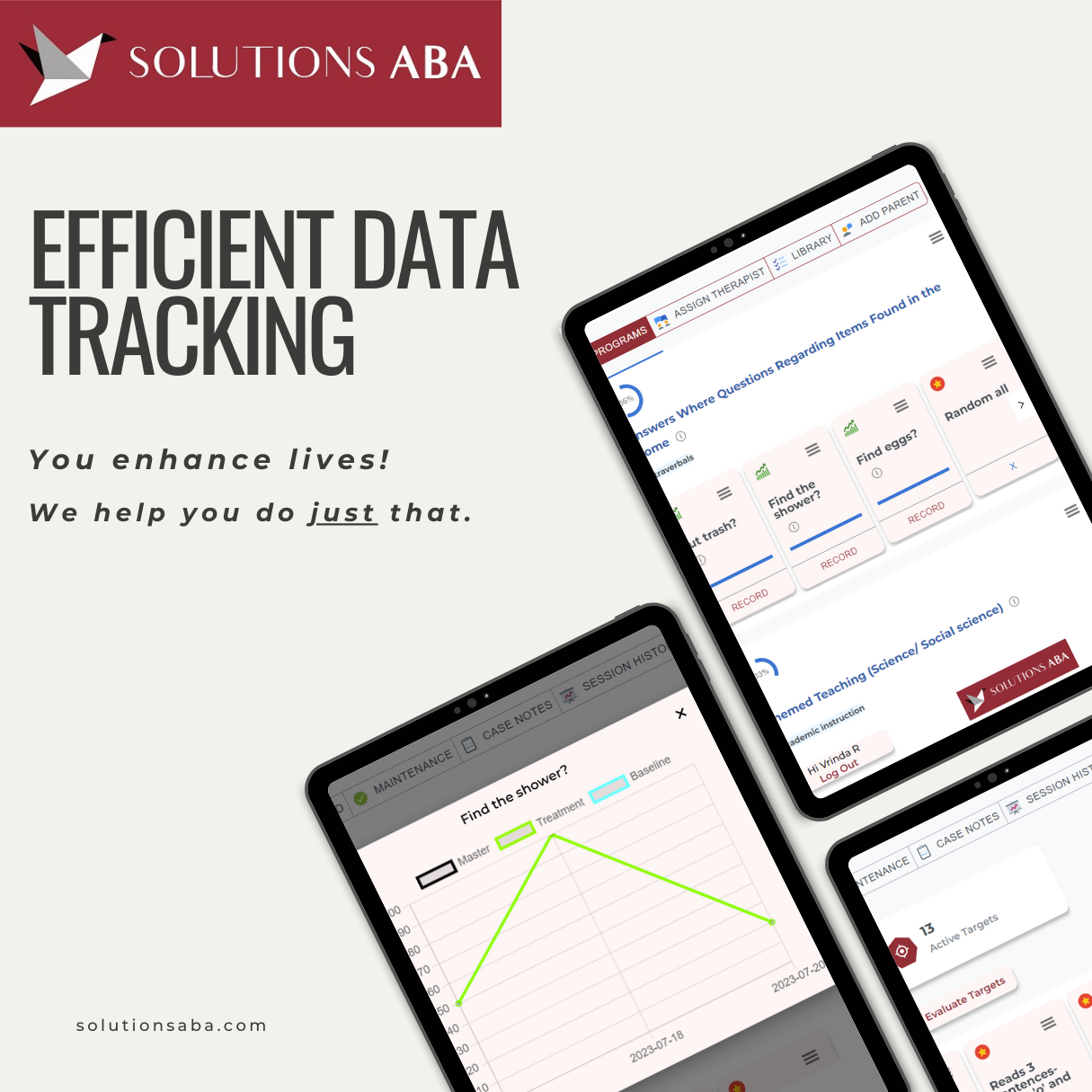Hot off the press
Bringing Language to Life: A Narrative on Language Acquisition in ABA Sessions
Discover how understanding Gestalt and Analytic language acquisition can transform ABA therapy. A fresh look at supporting autistic learners through meaningful language.

World ABA Day: Leading with Kindness in ABA Therapy
Celebrate World ABA Day by reflecting on the power of kindness in ABA. Learn about ABA’s history, its evolution, and how compassion shapes positive outcomes for clients, parents, and professionals.

ABA Therapy and Discrete Trial Teaching (DTT): Enhancing Learning for Children with Autism
Discover how Discrete Trial Teaching (DTT) in ABA therapy effectively teaches children with autism essential skills. Learn the benefits, limitations, and best practices for implementing DTT successfully.

Autism and Anxiety: Powerful ABA Tools to Understand and Alleviate Anxiety in Children with Autism
Anxiety often coexists with autism, creating significant challenges for children and families. Understanding anxiety from an Applied Behavior Analysis (ABA) perspective provides powerful insights and practical tools to manage and alleviate these difficulties.

Echolalia in Autism: Understanding Its Role in Communication and Neurodiversity
Echolalia, often viewed as a communication impairment in autism, is increasingly recognized as a functional and meaningful aspect of speech. This blog explores its role in autistic communication, drawing from research to highlight its cognitive, emotional, and social significance.

ABA and Gut Health in Autism: Recognizing Behavior as Communication
Many behaviors in ABA therapy are mistakenly labeled as attention-seeking or escape-driven when, in reality, they are signs of gut health issues like bloating or constipation. This blog explores how gut discomfort impacts behavior and why addressing internal health is crucial before implementing skill-building or behavior reduction strategies in therapy.

The Power of Communication: Introducing AAC at Home and Beyond
Many non-verbal children develop routines where their needs are met without using structured communication, making it difficult to introduce Augmentative and Alternative Communication (AAC) later. In this blog, we explore the challenges of introducing AAC to older learners, why early communication intervention is crucial, and step-by-step strategies for parents to integrate AAC at home effectively. Whether you’re a caregiver or professional, this guide will help you empower your child with the tools they need to communicate and advocate for themselves.
In case you missed it...
Rooted in Experience, Committed to Progress: Discover ABA Resources & Comprehensive Solutions for the Families We Serve
In a world of quick content, I’m choosing to slow down and share my journey in Applied Behavior Analysis (ABA). With 15 years in Special Education, 5 as a BCBA, and now a Regulated Health Professional in Ontario, I’ve worked primarily with children with multiple diagnoses, recently focusing on autistic children under the Ontario Autism Program (OAP).
This blog is a space where I reflect on the lessons, challenges, and milestones I’ve encountered, while integrating research-backed insights that bridge autism research and ABA practice. I firmly believe that staying informed across all areas of the field is essential to providing high-quality support.
Here, you’ll find practical strategies, evidence-based tools, and discussions rooted in both research and experience—helping families and professionals navigate this journey together.
Disclaimer: This blog reflects my personal journey and professional experiences in ABA. The content shared here is for informational purposes only and should not be considered individualized advice. For guidance specific to your child, please consult a qualified service provider or a regulated behavior analyst.







